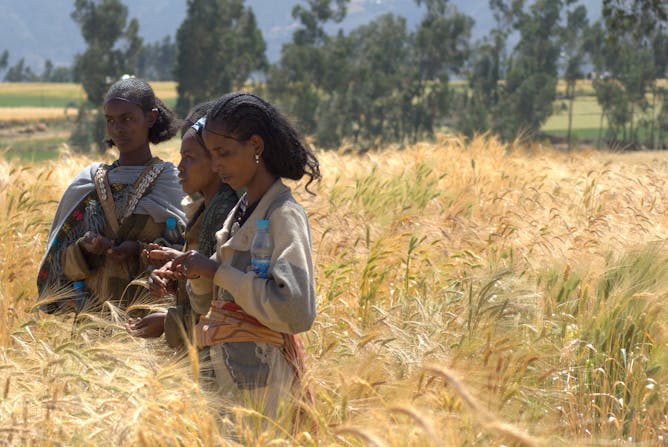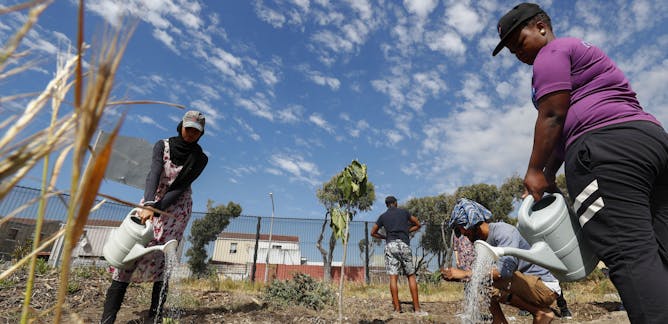|
Strife-torn Cameroon went to the polls on Sunday to choose a new president. Cheryl Hendricks and Gabriel Ngah Kiven write that President Paul Biya (85), who has been in power for 36 years and barely spends time in the country, is set to win another seven-year term that will allow him to continue his legacy of corruption and violent repression. His case underscores why term limits are so important.
Malnutrition is a major health concern in lots of countries because it can contribute to a variety of health issues like stunted growth and poor immunity. Soil could be part of the solution. Frédéric Baudron explains how research in Ethiopia has shown that soil with higher amounts of organic matter produces wheat with more nutrients. Managing soil in ways that makes it healthier is an additional tool in the fight against poor nutrition.
|

Cameroonian President Paul Biya votes in the presidential elections in the capital Yaounde. He has been in power for 36 years.
EFE/EPA/Nic Bothma
Cheryl Hendricks, Human Sciences Research Council; Gabriel Ngah Kiven, University of Johannesburg
President Paul Biya's credibility and legitimacy are increasingly being tarnished, amid growing support for opposition candidates.
|

Farmers in Ethiopia evaluate traits of wheat varieties.
Flickr/J.van de Gevel
Frédéric Baudron, International Maize and Wheat Improvement Center (CIMMYT)
More action is needed to increase soil organic matter for the sake of improved nutrition.
|
Politics + Society
|

Winston Morgan, University of East London
We need action if black scientists are ever to receive the highest level of recognition.
| |

Benjamin Roberts, Human Sciences Research Council; Narnia Bohler-Muller, University of Fort Hare
A survey shows that support for land reform in South Africa differs according to race.
|
|
|
From our international editions
|
-
Courtney J. Campbell, University of Birmingham
Brazil could see a return to the dark days of the military dictatorship.
-
Keith Shine, University of Reading
Limiting human-induced warming will be tough, given where we start from.
-
Rosalyn R. LaPier, The University of Montana
Many Native languages are dying, and their loss has deep and profound implications for our world.
|
|